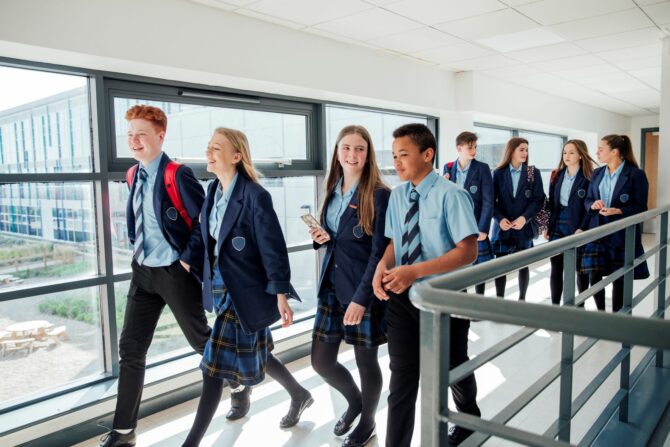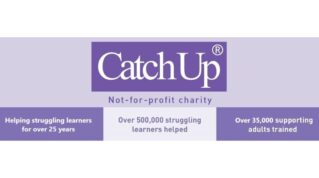Every school is on a journey – and the extent to which pupils can fulfil their potential relies heavily upon the success of a school’s journey. A large part of this is contingent on having an effective and sustainable behaviour culture.
As schools continue to recover from the effects of the pandemic, behaviour is a crucial aspect of the challenge presented by the legacy of COVID-19. Though teachers were quick to adapt, the inevitable disruption to pupils’ learning from school closures and staffing challenges has had an effect not only on pupils’ attainment and wellbeing – but also their behaviour.
Addressing disruption in the classroom is at the forefront of educational policy to ensure all pupils have the best chance to learn, grow and flourish in schools. And vehicles for change, such as the Behaviour Hubs programme, are able to help schools and multi-academy trusts implement the lasting and sustainable changes to behaviour culture that they hope to achieve.
The Behaviour Hubs programme supports a school or MAT’s behaviour journey, helping them to create calm, safe and supported environments with pupils in schools and ready to learn. Lead schools and MATs provide bespoke support which helps schools and trusts to diagnose issues and build effective behaviour cultures.
Behaviour Hubs aims to be an inclusive programme that works across all phases and provisions, as well as in areas of varying levels of deprivation. Alongside mainstream provisions, the programme has welcomed several exemplary special and alternative provision (AP) Lead schools, which support other special and AP schools.
This school-to-school support is complemented by a series of online training modules and resources, in addition to open days and networking events which allow schools to observe and share good behaviour practices.
Based on the hundreds of schools and trusts that have already referred themselves to the Behaviour Hubs programme, some common behaviour challenges across all regions of the country have been identified.
- Lack of whole school or trust-wide consistency
One challenge that is affected by a myriad of internal and external forces is consistency: ensuring that behaviour policies are applied systematically and equitably across the school or throughout a trust.
Many schools that refer themselves to the Behaviour Hubs programme do so because although strategies have been put in place to support pupil behaviour, they can be undermined if expectations are not consistently communicated.
This is why the programme places such a strong emphasis not simply on improving behaviour – but building a behaviour culture. A culture is larger than the sum of its parts; it will outlast the individuals who have implemented the policies and strategies which feed into it.
Behaviour Hubs was developed to ensure that not only do senior leadership teams have effective systems in place, but they have the tools to self-diagnose and make iterative improvements to these systems themselves going forward which makes these systems lasting and sustainable.
For MATs, it can be even more difficult to ensure consistency within schools across their trust. But why is it so important for a trust to build a behaviour culture across its academies?
“The evidence is clear that leaders in high performing schools create a collective culture of high behavioural expectations,” explained Mark Emmerson, CEO of City of London Academy Trust and adviser on the Behaviour Hubs programme. “It is what children need and what great schools have done over many decades: building a culture and, subsequently, a reputation.”
A recent announcement that is likely to impact the prioritisation of behaviour culture is DfE’s target for all schools to convert to academies by 2030. First outlined in the Schools White Paper in March 2022, this is part of the government’s strategy to “level up school standards”. As a result, MATs will undoubtedly need to consider strategies to standardise their approach toward behaviour culture as they are poised for growth in the coming years.
“As we move to a trust-led school system, it is more important than ever to establish a clearly articulated vision to accurately define their values and standards,” Mark continued. “School communities will then be better able to decide which trust they wish to join.
And as more schools join multi-academy trusts, it is critical that they understand the necessity of systems alignment, if they are to fully benefit from the collaborative school improvement opportunities on offer.”

- Dealing with particularly challenging behaviour
While schools generally feel more confident managing low levels of disruption in the classroom, instances of high-level disruption can challenge even the most experienced teachers and senior leaders. Without the right support it can be difficult to approach challenging behaviour, which in turn can lead to an ineffective learning environment for all pupils.
This was Ercall Wood Academy’s focus when it joined the Behaviour Hubs programme in April 2021. “Ercall Wood is a diverse and comprehensive academy, drawing pupils from both affluent areas and a significantly deprived area,” explained Richard Gummery, Principal of Ercall Wood Academy.
Richard did not want to simply “deal with” these individuals – but to support them, understand and address their needs. “We wanted to develop a culture of optimism and lateral thinking in how we meet these pupils’ needs. This would involve changing a mindset that pupils who are challenging will be referred to alternative provision before exploring all possibilities.”
We wanted to create systems for these pupils to manage and self-regulate their behaviours in order to access their learning successfully,” Richard explained.
After being welcomed onto the Behaviour Hubs programme, Richard and his team worked on introducing an inclusion culture as opposed to an exclusion culture wherever possible. The school appointed mentors and launched the Aspire programme to help struggling pupils engage more effectively with the curriculum.
“The Behaviour Hubs programme helped significantly in consolidating our thinking on how to meet the needs of our most challenging young people,” Richard added. “Seeing good and outstanding practice in other academies shaped our strategies in our academy. Phrases such as ‘behaviour is communication’ and ‘certainty not severity’ are now framed in our policies and actions.”
Behaviour Hubs offers tailored support to schools based on their specific behaviour-related goals. Because no two schools are the same, no two schools receive the same support – and it is this ‘one size doesn’t fit all’ approach that underpins the success of the programme to date.
- Ineffective use of feedback systems
Another challenge which a number of senior leaders have cited in their applications to the Behaviour Hubs programme is that their current approach to feedback on pupils’ behaviour is not helping to minimise classroom disruption.
While children should have room to develop and express themselves, it is important to ensure that expectations relating to what is deemed acceptable behaviour are clearly communicated and understood. And although sanctions have their place within the school environment, it is just as vital to ensure that positive behaviour is rewarded.
This is what the Cornelius Vermuyden School set out to achieve when it joined the Behaviour Hubs programme last year.
“We wanted to become ‘an organised school’ with clearly defined boundaries, to remove any ambiguity regarding what is acceptable and what is not for all stakeholders. In turn, our aspiration was to ensure expectations and subsequent consequences are clearly known and understood.”
Following their year spent on the Behaviour Hubs programme, Cornelius Vermuyden is already observing green shoots from their action plan put into practice. In addition to strong positive shifts in behaviour data, 100% of teachers now think that there is a culture of recognising and celebrating positive behaviour at the school.
“We knew we had to change behaviour but we just didn’t know where to begin,” said Nadia Ounzain, Assistant Headteacher at Cornelius Vermuyden School. “But being a part of Behaviour Hubs made this process a lot more manageable. I can’t tell you how transformative the programme has been for our school.”
Every school is on a journey
The aim of the Behaviour Hubs programme is to support schools and trusts on their behaviour journey – and this journey looks different for everyone. Schools and MATs that graduate from the programme do so with the understanding that their journey continues; behaviour will never be perfect because perfect behaviour doesn’t exist.
However, building a strong behaviour culture allows behaviour expectations to be understood by all. It lays the foundations for schools to be consistent in their application of behaviour policies, and it allows all pupils to receive the best possible outcome from their educational setting.
“The programme has been even more successful than we hoped,” said Tom Bennett, lead adviser on the Behaviour Hubs programme. “The level of engagement from induction to completion has been remarkable, and I think it is down to the extremely high quality of the materials and the brilliant relationships that have been carefully brokered between Lead and Partner schools.”
“We’ve built this program with sustainability baked into it. Real school cultural change is superficial unless it is built to last, so we’ve designed the Lead/Partner school relationship to be the blueprint of continued success and perpetual self-improvement.
Once the principles of effective school leadership are unpacked clearly, they cannot be unseen – and everyone who engages fully with this process will possess life-long skills, aptitudes and a language to help determine success in every school project they subsequently embark upon.”
The Behaviour Hubs programme is currently accepting applications from schools and MATs for the September 2022 and January 2023 cohorts. Visit www.behaviourhubs.co.uk for more information and how to apply.
















Your thoughts